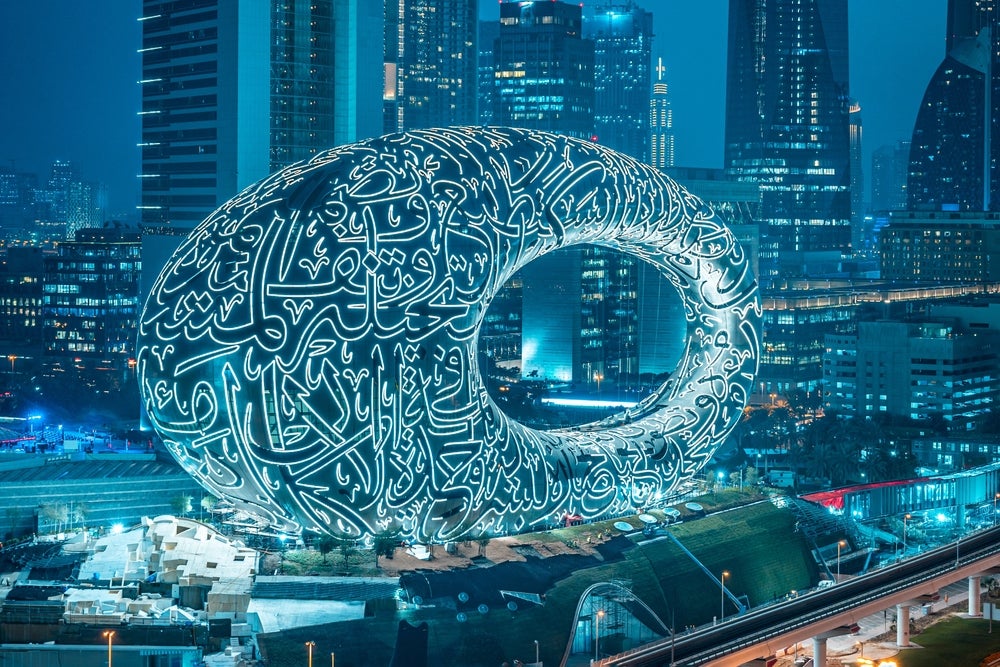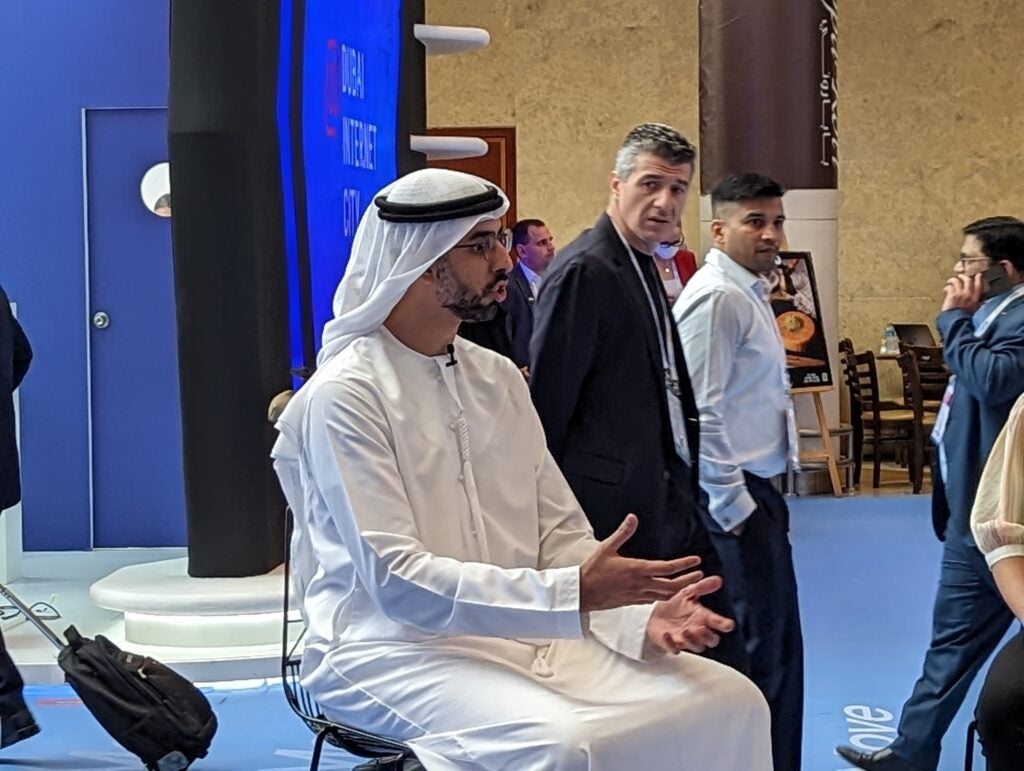
Dubai aims to become a hot bed for artificial intelligence (AI) innovation. The city has invested billions of dollars to realise those ambitions. Over the years, the Gulf metropolis has unveiled a string of programmes to attract startups and established companies to set up shop in the city. On paper, those initiatives have born fruit. Capital is flowing into the United Arab Emirates (UAE) in general and into Dubai in particular.
However, talent shortages could scupper Dubai’s dreams to become a Promethean AI powerhouse. In a recent study, the Institute of Engineering and Technology warned that over nine out of 10 engineering-focused firms struggled to source talent in 2021. Fifty-four per cent experienced a skills shortage and 97% said they needed training to deliver their goals over the next five years.
The lack of talent worsened after the pandemic caused a brain drain in the region. Experts from recruitment company Hays suggest foreign workers left the region once Covid-19 restrictions lifted.
The demand for skilled software engineers is also evident in the skyrocketing salaries professionals in the sector can take home. Dubai-based software engineers can earn up to 30% more than their peers in rival European tech hubs like London and Amsterdam, according to global consulting firm Mercer.
Dubai and the rest of the UAE clearly have problem, but the nation’s leadership is trying to fix the issue as Omar bin Sultan Al Olama, UAE minister of state for AI, told Verdict in an exclusive interview. He remains optimistic about Dubai’s ability to turn things around.
“It is not perfect,” he told Verdict. “But we’re seeing a positive momentum.”
How well do you really know your competitors?
Access the most comprehensive Company Profiles on the market, powered by GlobalData. Save hours of research. Gain competitive edge.

Thank you!
Your download email will arrive shortly
Not ready to buy yet? Download a free sample
We are confident about the unique quality of our Company Profiles. However, we want you to make the most beneficial decision for your business, so we offer a free sample that you can download by submitting the below form
By GlobalDataThe AI minster argued that the UAE had about 30,000 developers in 2021, but that that figure has supposedly grown to 70,000 in 2022 thanks to a number of government initiatives.
The UAE has, for instance, overhauled its visa rules in an effort to attract more tech talent. In April, the nation introduced two new long-term visas, a 10-year golden visa and a five-year green visa, both designed to make it easier for visitors to obtain long-term residency rights in the UAE. Al Olama believes these efforts are already born fruit.
“We’re hoping to reach the target of [100,000 developers] in the next two months,” he said. “The important point here is that that the UAE is fast becoming a hot bed of talent.”
The AI minister added that while countries like the US and China have a huge legacy workforce, Dubai has had “to build our talent [pool] from scratch.” In a push to upskill young Emiratis, the country has also announced plans to invest $6.5bn towards that end. This builds on initiatives like the establishment of the Mohamed bin Zayed University of Artificial Intelligence in Abu Dhabi in 2019.
Moreover, Dubai International Financial Center launched a license for AI and coding in March 2022. The designated economic zone’s license was launched in cooperation with the United Arab Emirates Artificial Intelligence Office to attract AI companies to the UAE. Licensed firms will receive access to the Dubai International Financial Center’s Innovation Hub, where several fintech companies operate, the center said in a press release.
UAE wants to become an AI pioneer
Al Olama spoke with Verdict during the GITEX technology industry conference held in Dubai last week. Verdict attended the event as part of a media trip organised by Dubai’s Department of Economy and Tourism.
GITEX served as a reminder of Dubai’s tech ambitions. For four days, visitors were able to listen to over 1,000 speakers, walk through the exhibition area of 26 halls and two million square feet, watch more than 5,000 companies from 90 countries peddle everything from AI solutions to metaverse services. Visitors could touch and experience everything from flying cars to delivery robots – technologies underlined by AI.
Al Olama, in a way, represents Dubai and the overall UAE’s ambition to become an AI hot bed. When he was appointed in 2017, he became the world’s first parliamentary minister to focus on AI. It is worth mentioning that the lack of an equivalent role in the UK has become a topic of some contention in Blighty.
The UAE Government first launched its AI strategy in 2017. The goal of the strategy and the UAE Centennial 2071 project is to transform the country into a nation “for future generations,” as Mohammad Bin Zayed Al Nahyan, Abu Dhabi’s crown prince, put it at the time.
The AI minister has repeatedly echoed that sentiment over the years and has been cited as wanting to make Dubai “the capital of AI in service and government”. His mission has been to introduce AI solutions in an effort to modernise everything from education and energy to transport and space – and to do so in an “ethical” way.
To him, ethical AI refers to “non-controversial uses of AI” where the technology is deployed “not for the sake of deployment, but for the sake of public good.”
“How do we improve quality of life of people using artificial intelligence instead of focusing just on economic gain?” Al Olama said, explaining that this includes looking at if jobs would be lost due to the deployment of the technology and what “the negative repercussions on individuals” could be. For instance, if AI is deployed in healthcare and ends up affecting people’s ability to get insurance or a loan, “then the answer should be that you do not deploy AI.”
“If you’re just going to make more money, but people are gonna lose their jobs. It’s not something that we aspire to do,” he said.

Why is Dubai pushing into AI?
The UAE and the wider Middle East have long been thought of as an oil region. However, Gulf economies were hurled into a state of shock in 2014 when oil prices suddenly dropped. The price of crude dropped again during the pandemic to a 22-year low again in 2020. It has since recovered, but the wobble underlines how the UAE’s reliance on oil could end up being a source of strength for its economy and a weakness.
Covid-19 also hurt the economy in other ways. Closure of non-essential businesses, slump in demand, and overall pessimistic business outlook in the emirate resulted in the economy contracting by a massive 10.9% in real terms in 2020, according to analysis firm GlobalData’s research.
Various stimulus and support packages were rolled out for a total of $1.8bn between 2020 and 2021 to provide liquidity to businesses operational in sectors such as commerce, retail, external trade, tourism and energy. The economy rebounded with real GDP growth of 4.0% in 2021 and is forecast to grow by 3.0% in real terms during the period between 2022 and 2025.
Nevertheless, the UAE has recognised the need to diversify its economy, with technology being a key priority to achieve this goal in a post-oil world. This understanding is one of the reasons why Dubai aims to become an AI superpower.
AI investment in UAE
To become an AI leader, you need money. Capital is not something Dubai is in short supply of. Oil has made the UAE rich. However, Dubai is not relying solely on the nation’s deep pockets. Outside investors are also increasingly investing in the nation’s emerging tech community.
Venture capital investors have poured money into the UAE’s technology industry. In 2021, VCs invested over $1.13bn across 125 deals into the UAE’s tech industry, according to data from GlobalData. As of mid-October, tech companies in the country have enjoyed $925m worth of VC dosh across 81 deals. That still up from 2018 when the country’s tech sector raised $407m across 66 VC deals in total.
Taking a closer look at the UAE's AI industry, GlobalData's data paints a rather scattered impression. In 2016, AI companies raised $16m across three VC deals. That figure dropped $3m in 2017, to $2m in 2018 and remained there in 2019 before jumping to $6m in 2020 and then to $10m in 2021.
Foreign direct investment (FDI) into the UAE far outstrips that seen in other Gulf nations, and Dubai’s open policy welcoming business travel during the pandemic saw an increase in investment activity at a time when investment levels in other countries were retracting. FDI refers to companies establishing business operations abroad via mergers and acquisitions or by simply setting new operations in the region.
UAE's enjoyed an inflow of $19.8bn of FDI in 2020, compared to $5.4bn $4.0bn enjoyed by Saudi Arabia and Oman respectively.
"The numbers we see are just the beginning," Al Olama said. "I really believe based on the programmes that we have based on the ambitions that we have, what we're seeing is a starting point, it is not the plateau. And hopefully beyond this, you're going to see a lot more growth."
Indeed, there are some indications that the AI minister might be right. In August, Abu Dhabi-based AI firm G42 set up a $10bn fund to invest in UAE tech companies. In the same month, US company Falcons.AI announced it was opening an operation in the country as a platform to expand its AI services across the wider Middle East region, highlighting that foreign companies are opening up to the nation.
GlobalData is the parent company of Verdict and its sister publications.






